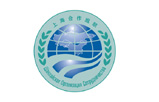Pacific economies seen to grow 6% in 2012
(Xinhua) Updated: 2012-07-25 15:08MANILA - Pacific economies will remain resilient despite economic woes in Europe thanks mostly to increased government spending on public infrastructure, according to the latest Pacific Economic Monitor released Wednesday by the Asian Development Bank (ADB).
The Manila-based lender expects growth in the Pacific region to expand 6 percent in 2012.
"Economic troubles in the eurozone continue to have only modest and indirect effects on Pacific economies, owing to the relatively greater importance of economic developments in Australia, Japan, New Zealand, and the United States in driving Pacific growth," the ADB said in its report.
The ADB also sees inflation in the Pacific region to ease to 6.3 percent owing to declining commodity prices.
Agricultural, petroleum and metal exports from Papua New Guinea and Timor-Leste, the two biggest economies in the region, were hit by lower international commodity prices. The ADB said the 2012 growth projections for these two resource-based economies are unchanged because their near-term growth is more dependent on ongoing infrastructure projects.
The ADB, however, has mixed views on the economic performance of smaller Pacific islands.
Growth in the Cook Islands and Samoa has fallen short of expectations as capital expenditures have been below budgeted levels. A decline in seafarers'remittances in Tuvalu and slower- than-expected implementation of infrastructure projects in Vanuatu have also resulted in modest downgrades of 2012 growth projections for these countries.
The ADB expects growth to be higher in Fiji, thanks to expansion in the mining sector and increased development-partner funded projects; and Palau, on back of a booming tourism industry.
But the ADB said slowing growth in China may hurt the Pacific economies, mainly due to its strong ties with Australia, the main trading partner of most Pacific countries.






